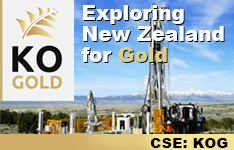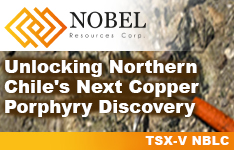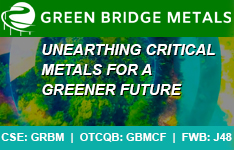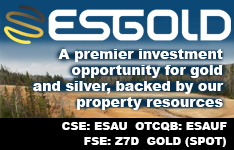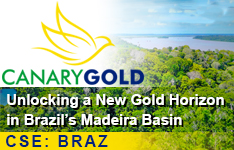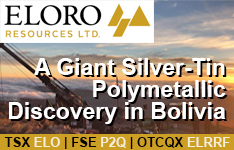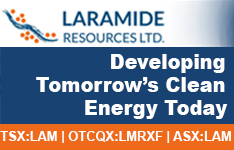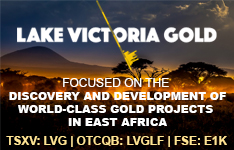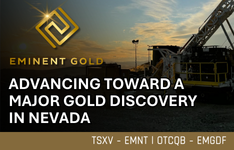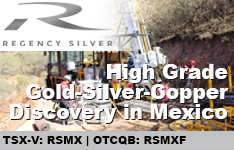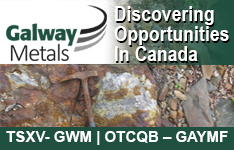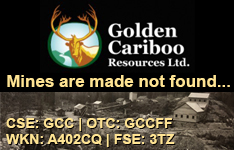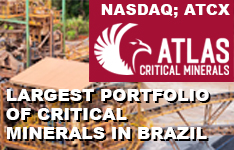The Life Sciences Report: The American Society of Clinical Oncology (ASCO) annual meeting was held in Chicago a few weeks ago. Did you feel like a theme emerged from the conference?
Echo He: People attending ASCO are looking for specific, targeted treatment solutions, and for data that show significant improvements in efficacy over previously approved drugs. Drugs that are likely to be effective, but not significantly more effective, tend not to generate very much excitement. But when people find out about a drug that can improve therapy in a significant way, especially in a well-designed and a good-size trial, they pay a lot of attention�even to drugs in early-stage, Phase 1 trials. Improved efficacy was the main theme, in my view.
TLSR: Does that imply people are looking for drugs meeting needs that have not yet been met?
EH: Not necessarily. In some areas there are already effective treatments. Investors are looking for drugs that could take that effectiveness to a new level. It does not matter if there are existing drugs: People give a lot of attention to better drugs.
TLSR: I'm sure you spoke with buysiders at ASCO. What was the mood of these investors? Are they still excited about biotech stocks, or did you note caution?
EH: Usually, the people who go to ASCO are more specialized, and are believers in biotech. These specialist investors would be longer-term holders of stocks they like. I don't think their moods swing much. To them, it doesn't matter if the stock market goes up and down. They are looking for new discoveries and drugs that have value, and probably wouldn't be affected by the short-term setback of the stock market in biotech.
TLSR: What differences do you see in the tone between generalist and specialist biotech investors?
EH: Generalists tend to chase momentum. If you're looking at a changed mood, you would be talking about generalists. They look at the overall stock market trend and trading volume. The mood of the generalist correlates to the stock market�up or down.
TLSR: So biotech specialists tend to be focused on fundamentals and regulatory events, whereas generalist investors are looking at the stock price most of the time.
EH: Right.
TLSR: There are some companies you wanted to talk about today. Start with the one you like most, and tell me your investment theory.
EH: Let's talk about Ariad Pharmaceuticals Inc. (ARIA:NASDAQ) first. Its market cap is slightly over $1 billion ($1B), and it has one drug on the market right now called Iclusig (ponatinib), which targets chronic myelogenous leukemia (CML). This stock is very familiar to a lot of investors�specialists, generalists and some retail investors, too. Iclusig was approved in late 2012 as a third-line CML treatment. Longer follow-up data showed the drug caused a higher-than-previously-reported rate of vascular occlusion events, so the U.S. Food and Drug Administration (FDA) temporarily suspended the drug's U.S. marketing effort. That was reported in November 2013, and it caused the stock to decline quite significantly. Then, in January 2014, the drug was allowed to be remarketed in the U.S., with a much narrower indication and under a revised label approved by the FDA. This has been a setback for Ariad.
TLSR: But you like the company. You have a price target of $11 on the stock, and that is almost, but not quite, a double from current levels. Tell me what you like about it.
EH: First of all, Iclusig is already approved, both in the U.S. and Europe, although for a much narrower indication. The drug seems to be very effective compared to standard-of-care treatment, which is Novartis AG's (NVS:NYSE) Gleevec (imatinib mesylate). Two second-generation drugs with similar mechanisms of action are out in the market too. From the trial data reported at ASCO, it seems that Iclusig will likely have similar efficacy to the second-generation drugs, which means the efficacy is much stronger than Gleevec. Iclusig is considered by clinicians to be a third-generation drug, and its efficacy stands.
TLSR: Are you thinking that, because of the thrombotic events, Iclusig will never be a first-line therapy?
EH: It's probably not going to be a first-line therapy. But as long as Iclusig has good efficacy, penetration will likely gradually increase to a level that supports decent sales. This drug won't be ignored by physicians and patients, and will likely still get a decent market share. I estimate peak global sales to be more than $500 million ($500M).
"Generalists tend to chase momentum."
To give you a reference, Gleevec, currently the standard therapy in CML, will soon be going off patent, but is doing more than $4B in sales. The two second-generation drugs each have approximately $1B sales/year. With my conservative estimate of $500M in peak sales, I believe Iclusig is worth about $8/share.
TLSR: You have recently written about another Ariad drug, on which data were presented at ASCO. Tell me about that, please.
EH: In addition to Iclusig, important trial data were presented at ASCO on AP26113, a second drug candidate. AP26113 targets non-small cell lung cancer (NSCLC) that is anaplastic lymphoma kinase (ALK)-positive. ALK is a cancer cell surface marker. Depending on your source, this subset could be as low as 2% of total NSCLC patients�perhaps up to 8%. Still, that small percentage of patients represents a decent market share. AP26113 is currently in a pivotal Phase 2 trial, meaning Ariad wants to use the data for regulatory approval.
TLSR: The Phase 1 data were presented at ASCO. Tell me about that.
EH: The Phase 1 data were very impressive. First of all, the trial had a good design, with a decent sample size of 51 ALK-positive patients. A 69% objective response rate was reported, with one complete response. That trial was large enough to give investors some idea of how strong the drug might be in this type of patient, compared to Novartis' drug, Zykadia (ceritinib), which was approved at the end of April�actually, it was approved before its Prescription Drug User Fee Act (PDUFA) date based on early-stage data. It seems like Ariad's AP26113 might have comparable efficacy to Zykadia. If AP26113 can deliver on that efficacy, it could get part of the market. This drug, in my view, has not been taken into consideration in Ariad's valuation.
TLSR: Is Zykadia approved for the same exact indication�crizotinib-resistant, ALK-positive NSCLC patients?
EH: Yes, it is.
TLSR: Does AP26113 have to show greater efficacy or lower toxicity than Zykadia to get approval?
EH: No. As long as AP26113 is comparable, it can get approval and a good market share.
Cancer patients usually fail one drug, like crizotinib, before they go to Zykadia. If there's a third drug available, the oncologist would have another choice when the second drug fails. If AP26113 demonstrates efficacy it should get certain patients and a certain size market share, since cancers are incurable and patients always switch drugs. Because ALK-positive NSCLC represents a small portion of NSCLC patients, and also because two drugs are already available, I'm estimating $300M in peak global sales. With approval in 2017, the drug is worth $3/share at this stage.
TLSR: You have Ariad valued at $8/share based on Iclusig and $3/share based on a present value computation for AP26113, and that's how you get your target price of $11.
EH: Right.
TLSR: Before last November, when the stock plunged after the thrombotic events were reported with Iclusig, Ariad was valued at approximately $4B, or close to that. Today it has a $1.2B market cap. Could Ariad be a takeout target?
EH: In general, as long as a biotech company has a decent drug, it most likely will be eventually taken out by a larger company. At this stage, Ariad has to give the market more proof that Iclusig can grow revenues. Also, it may have to move AP26113 further through the Phase 2 trial, and show interim data to a potential acquirer. The company may not be a good acquisition target immediately, but in the long run, I think these two drugs could make Ariad a good acquisition target.
TLSR: Would you go ahead and address the next company, please?
EH: The second one is Exelixis Inc. (EXEL:NASDAQ), another cancer drug story. This company has been very quiet lately, and it did not publish any incremental data at ASCO. What's significant about Exelixis is its pipeline versus its low valuation. It currently has five Phase 3 trials going on, but has a market cap of around $700M.
"Investors are looking for drugs that could take that effectiveness to a new level."
The company has a lead candidate called Cometriq (cabozantinib), or cabo. Cabo is in two Phase 3 trials in prostate cancer. One is a 960-patient study with overall survival as the primary endpoint, and the other is a 246-patient study treating prostate cancer, with confirmed pain control as primary endpoint. Both of these trials are double-blind. If the drug could show an overall survival benefit, it would not need positive results in the pain-control trial to get approval.
TLSR: Why do a pain-control study if it is unneeded for approval?
EH: Exelixis wants to differentiate this drug from other prostate cancer drugs, where the market is very competitive. There is Xtandi (enzalutamide) from Medivation Inc. (MDVN:NASDAQ), as well as Zytiga (abiraterone acetate) from Janssen Biotech (a unit of Johnson & Johnson [JNJ:NYSE]). Zytiga was approved in April 2011 and Xtandi was approved at the end of August 2012, and both have been shown to be very effective drugs.
TLSR: One of the first comments you made about Exelixis was about its valuation. This stock has underperformed the market over the past year. Why is it depressed?
EH: The market actually has a lot of doubt about whether this drug can deliver on an overall-survival benefit. Right now, I think the cash on the company's balance sheet is more than $2/share, with the company trading at around $3.50/share. That means investors do not put too much value on the company's drug, and that's why the stock price is so depressed.
Let me give you some background. Both Zytiga and Xtandi trials were stopped early after an interim analysis by the independent data monitoring committee showed the drugs to be effective and safe, which meant the results were so favorable that the trial did not have to go to its end. But in late March, Exelixis reported an interim analysis from the data monitoring committee, and although cabo passed its futility analysis, the trial will continue to the end. That means the interim analysis was not strong enough for the trial to be stopped early, which disappointed investors. Since then, the stock has declined from low to even lower.
But in my view, that interim analysis does not mean the drug cannot achieve an overall benefit at the end, and I think there is a good chance the drug will achieve an overall survival benefit.
TLSR: When you referred to the smaller Phase 3 trial for cabo, with a primary endpoint of confirmed pain control, which could differentiate the Exelixis product from Zytiga and Xtandi, I presume we are talking about bone pain resulting from metastasis. Is that not an acceptable primary endpoint in these patients?
EH: Yes, it's about bone pain. But pain control alone does not warrant the drug's approval. Exelixis has to demonstrate a survival benefit. Although pain control does not matter that much for approval, it could matter when the drug is on the market.
TLSR: You have a price target of $11 on Exelixis. That represents a triple from current levels.
EH: Cabo is targeting metastatic prostate cancer, and that is a big market. If cabo could even achieve a 15% market penetration in metastatic prostate cancer, it could deliver close to $1B in global sales.
TLSR: It's always a pleasure speaking with you. Thank you.
EH: Thank you.
Echo He, M.D., Ph.D., is a former senior vice president and senior analyst with the Maxim Group. Prior to joining Maxim, she was a director at Oppenheimer & Co. Inc., where she conducted equity analysis of small- to mid-cap U.S.-listed Chinese stocks. Dr. He also served as a vice president at CRT Capital Group LLC, where she conducted equity and credit analysis of Chinese small-cap, U.S.-based life science and distressed companies. Dr. He was a research scientist at the National Institutes of Health (NIH), where she conducted part of the Human Genome Project, aimed at interpreting diseases and their risks by genetic patterns. Dr. He received a medical doctorate from Beijing University, a doctorate in medical sciences from the University of Toledo and a master's of business administration in finance and economics from the University of Chicago.
Want to read more Life Sciences Report interviews like this? Sign up for our free e-newsletter, and you'll learn when new articles have been published. To see recent interviews with industry analysts and commentators, visit our Streetwise Interviews page.
DISCLOSURE:
1) George S. Mack conducted this interview for Streetwise Reports LLC, publisher of The Gold Report, The Energy Report, The Life Sciences Report and The Mining Report, and provides services to Streetwise Reports as an independent contractor. He owns, or his family owns, shares of the following companies mentioned in this interview: None.
2) The following companies mentioned in the interview are sponsors of Streetwise Reports: None. Streetwise Reports does not accept stock in exchange for its services.
3) Echo He: I own, or my family owns, shares of the following companies mentioned in this interview: None. I personally am, or my family is, paid by the following companies mentioned in this interview: None. Maxim Group, which was my company at the time this interview was conducted, has a financial relationship with the following companies mentioned in this interview: Ariad Pharmaceuticals Inc., Exelixis Inc. I was not paid by Streetwise Reports for participating in this interview. Comments and opinions expressed are my own comments and opinions. I had the opportunity to review the interview for accuracy as of the date of the interview and am responsible for the content of the interview.
4) Interviews are edited for clarity. Streetwise Reports does not make editorial comments or change experts' statements without their consent.
5) The interview does not constitute investment advice. Each reader is encouraged to consult with his or her individual financial professional and any action a reader takes as a result of information presented here is his or her own responsibility. By opening this page, each reader accepts and agrees to Streetwise Reports' terms of use and full legal disclaimer.
6) From time to time, Streetwise Reports LLC and its directors, officers, employees or members of their families, as well as persons interviewed for articles and interviews on the site, may have a long or short position in securities mentioned. Directors, officers, employees or members of their families are prohibited from making purchases and/or sales of those securities in the open market or otherwise during the up-to-four-week interval from the time of the interview until after it publishes.







